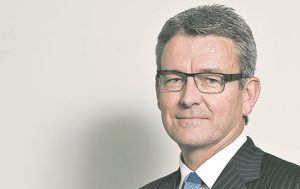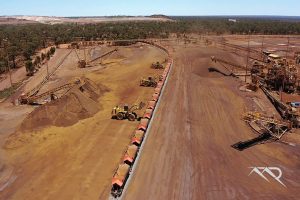Delegates attending the opening session of day two of Africa Downunder in Perth heard a virtual laundry list of minerals assets that Ghana has ready for foreign direct investment, which coupled with its strategic location, abutting the Gulf of Guinea and the Atlantic Ocean to the south, positions the world’s sixth largest gold producer in the box seat to deliver on its diversification ambitions.
Minister Jinapor said he was pleased to learn that Australian government-funded initiatives, such as Digital Earth Africa, was turning its focus to the resource sector to empower governments to better regulate gold mining, in addition to the positive impacts already made in food and water security.
Ghana has a long history of mining, with the industry predating the arrival of the first Europeans on the shores of the country sometime in the 15th century. Until the country’s independence in 1957, Ghana was known as Gold Coast.
“Since that time, we have developed the industry through various laws and policies, leading us to becoming the number one producer of gold in Africa between 2019 and 2021, and the sixth largest in the world,” Minister Jinapor said.
“The industry’s contribution to Ghana’s economy has been phenomenal, with gold alone providing approximately 40 per cent of our export earnings, and accounting for more than 90 per cent of our gross mineral revenues.
“In addition to gold, we mine bauxite, manganese and diamonds. There are also deposits of other minerals like lithium and iron ore; base metals such as copper, zinc, nickel, chrome and lead; as well as vast deposits of industrial or development minerals including sand, gravel, granites and salt.”
Importantly for foreign investment, Minister Jinapor explained the country’s national Constitution, which formed the basis of Ghana’s legal and regulatory regime, vested all minerals in their natural state in the President of Ghana, on behalf of and in trust for the people of Ghana.
This has the effect of empowering the President, via the Government, to grant concessions for the exploitation of mineral resources unilaterally.
There are currently 15 large-scale mining operations in the country, with 13 of them producing gold and the other two producing manganese and bauxite. The country is also supported by more than 200 companies offering engineering and mine support services such as drilling, contract mining and assaying services.
Pointing the potential for diversification of Ghana’s mineral exports, Minister Jinapor said the country’s diamond production was largely produced from small-scale mining but had a huge potential for viable large-scale operations.
He also said industrial minerals that anchor the infrastructural development of the country were being exploited, with clay, feldspar, limestone, salt, granites, sand and kaolin being mined across the nation by more than 100 licensed quarry operations.
Ghana has about 500 active exploration projects focused on a range of mineral opportunities including gold, lithium, copper and cobalt, with recent geological investigations indicating viable prospects for iron ore, nickel, zinc, chromium, lead and columbite-tantalite.
“The priority of the Government of Ghana continues to be the translation of these volumes of minerals production into wealth to benefit all stakeholders, equitably, including the larger populace as optimally as possible,” Minister Jinapor said.
“The government is, therefore, mindful of the need to implement mining-friendly policies to sustain these achievements, while ensuring environmental sustainability and protecting the interest of citizens and investors alike.”
“Fortunately, in Ghana the rule of law is the norm and not the exception. It is the pivot around which our governance architecture revolves. With a stable democracy spanning over 30 years, with peaceful elections and successful change of government from one political party to another.
“Investors are assured of the protection of their rights, regardless of the outcome of national elections. Our respect for the rule of law has earned us the enviable title of ‘the beacon of democracy in Africa’.”

The Hon. Samuel A. Jinapor, Ghanaian Minister of Lands and Natural Resources



